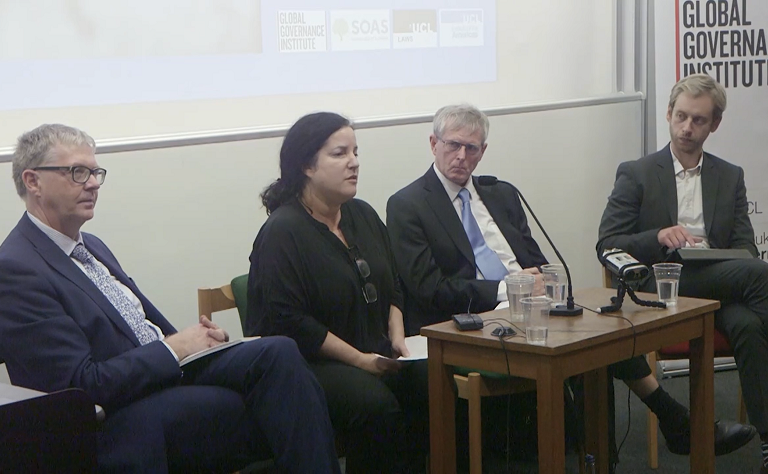Securing Justice for Victims of Torture
5 December 2017
An interview with Carla Ferstman, Director of REDRESS, a London-based human rights organisation that helps torture survivors obtain justice and reparation.

Could you please tell us about REDRESS' work in relation to torture prevention?
REDRESS was founded about 25 years ago by a survivor of torture. We were founded in order to make sure that the provisions in the Convention against Torture (CAT) could be implemented in practice. So we work with survivors to help them seek remedy for the harm that they suffered, we pursue justice in many countries around the world, and we try to unblock barriers to justice where we find them.
What role can the International Criminal Court (ICC) play in terms of investigating torture and providing compensation for victims?
The crimes that come under the jurisdiction of the ICC Statute include torture in many respects - torture is an element of crimes against humanity and an element of war crimes, though the definitions are somewhat different. What has been really important about international criminal law generally is the understanding that torture is not only perpetuated by state actors but also by persons in authority, and that has been a crucial development.
What should or could the UK do to better assist victims of torture, and what do you see as the main areas for reform within the UK?
It is really important for the UK to have a joined-up approach to torture. The Foreign Office works on human rights issues globally, the Home Office works on issues relating to torture internally - there needs to be some connection between the two and an overall appreciation that they are working towards the same objective, which is to prohibit torture. When one does so and the other does not, they counteract each other, which is something we want to avoid.
What do you think would be the best mechanism for avoiding that counteraction?
One of the things that we have called for in the past is an overall country strategy on the prohibition of torture, so we hope that the UK government will decide that this is a useful thing to develop. At the moment there is no overarching strategy, so there is a lot of disjointed thinking about how best to promote those types of objectives.
This interview was conducted by Nicole Watson, MSc Global Governance and Ethics. It was recorded at the inaugural meeting of the UK Network on the Prohibition of Torture on 2 November 2017.
Carla Ferstman is Director of REDRESS, a London-based human rights organisation that helps torture survivors obtain justice and reparation. She was called to the Bar in British Columbia, Canada in 1994 and practiced there as a criminal law barrister. Also prior to joining REDRESS, she worked with the UN High Commissioner for Human Rights in post-genocide Rwanda, with Amnesty International's International Secretariat as a legal researcher on trials in Central Africa and as Executive Legal Advisor to Bosnia and Herzegovina's Commission for Real Property Claims of Displaced Persons and Refugees (CRPC). She obtained an LL.B. from the University of British Columbia and an LL.M. from New York University and completed her DPhil at the University of Oxford. She has published and is a regular commentator on victims' rights, the International Criminal Court and the prohibition against torture.
 Close
Close


